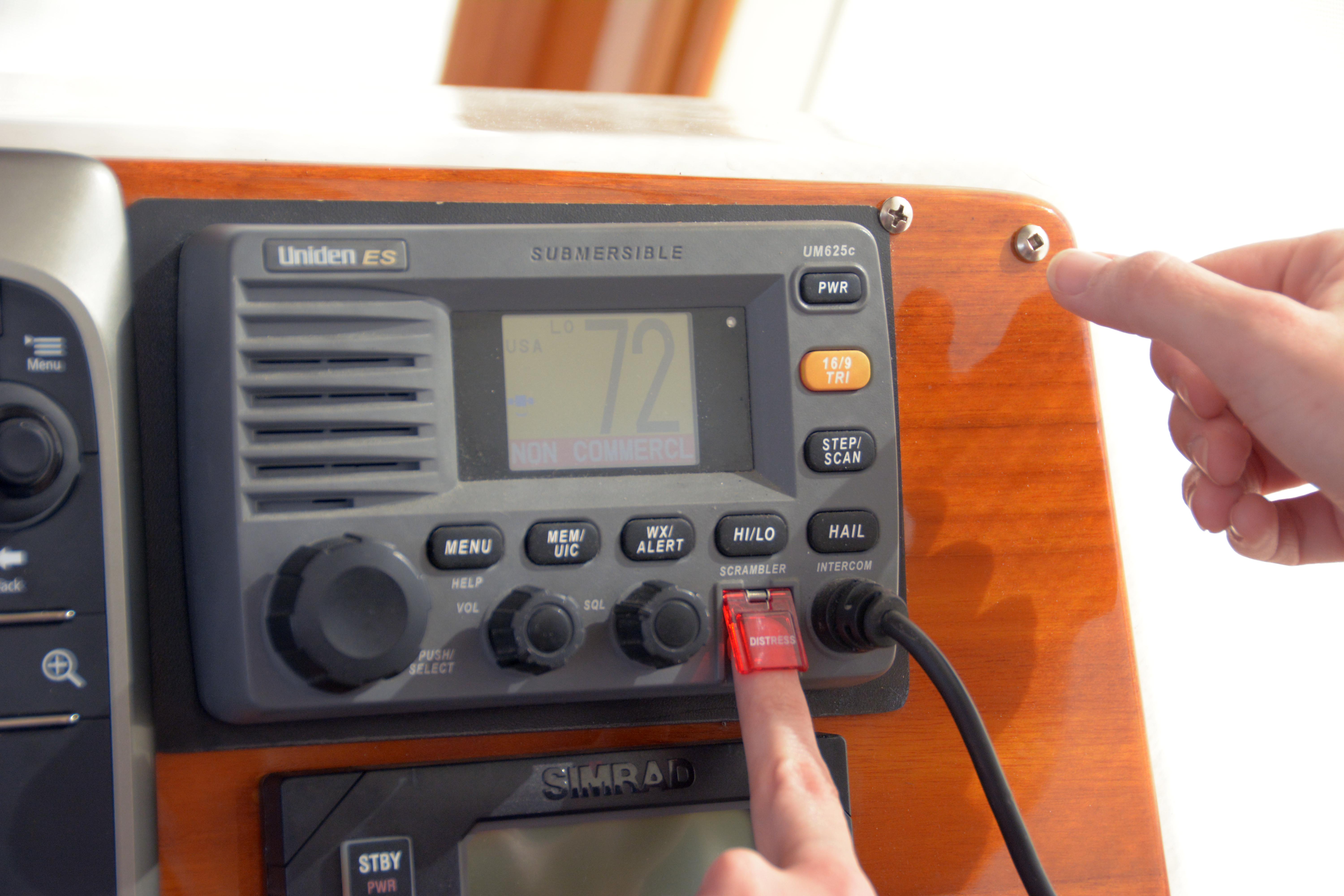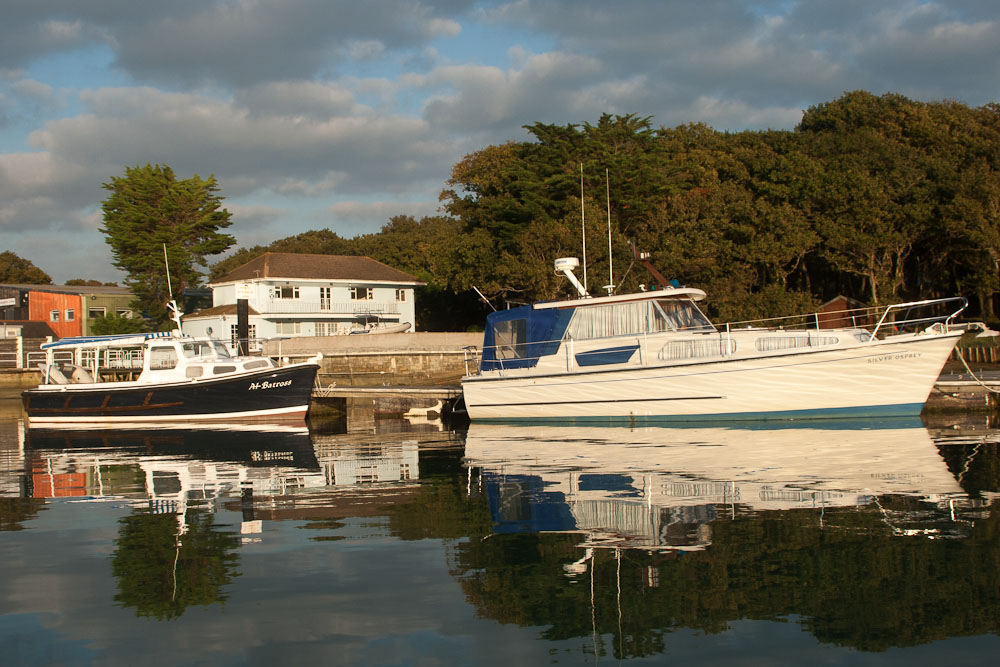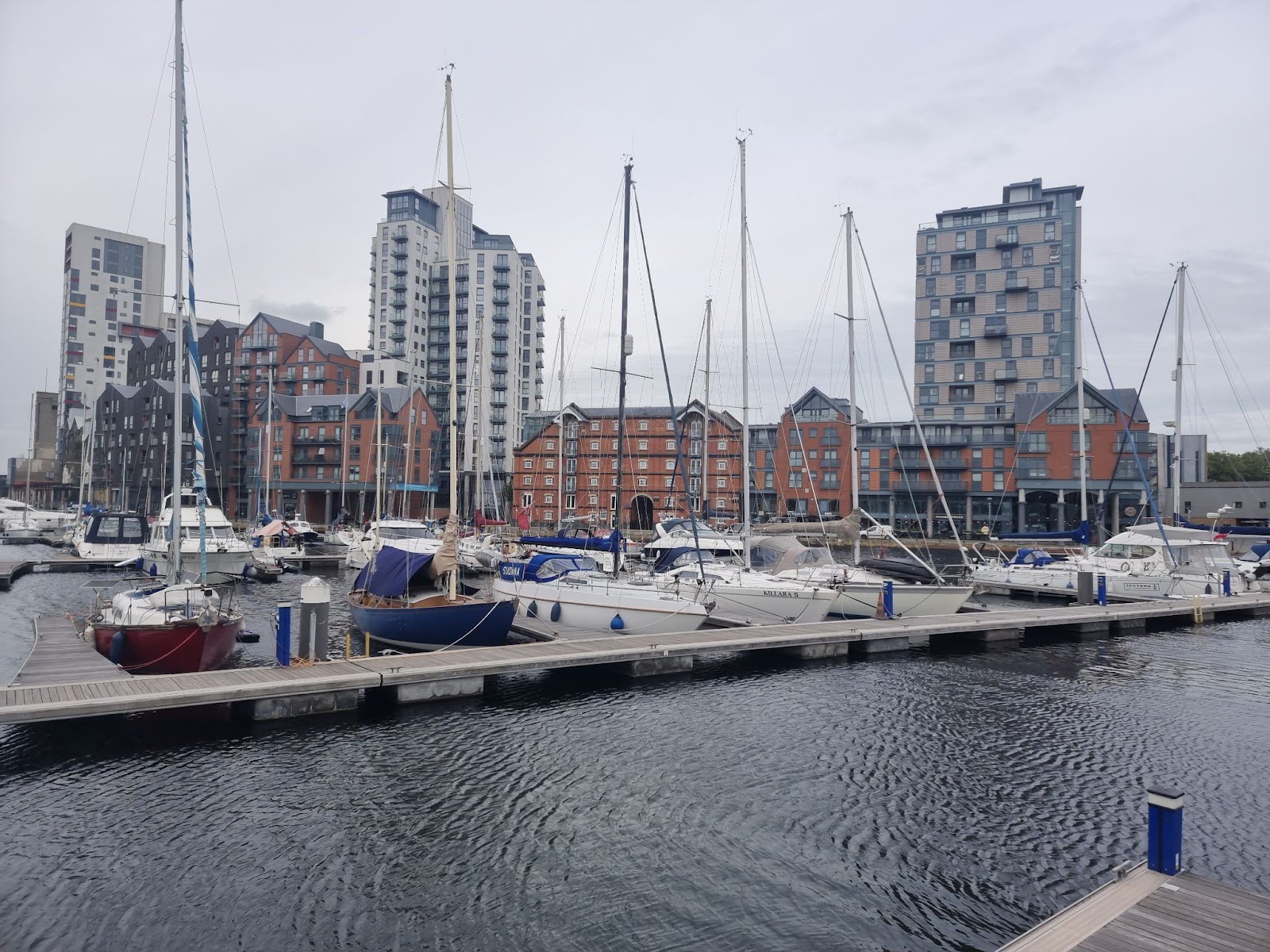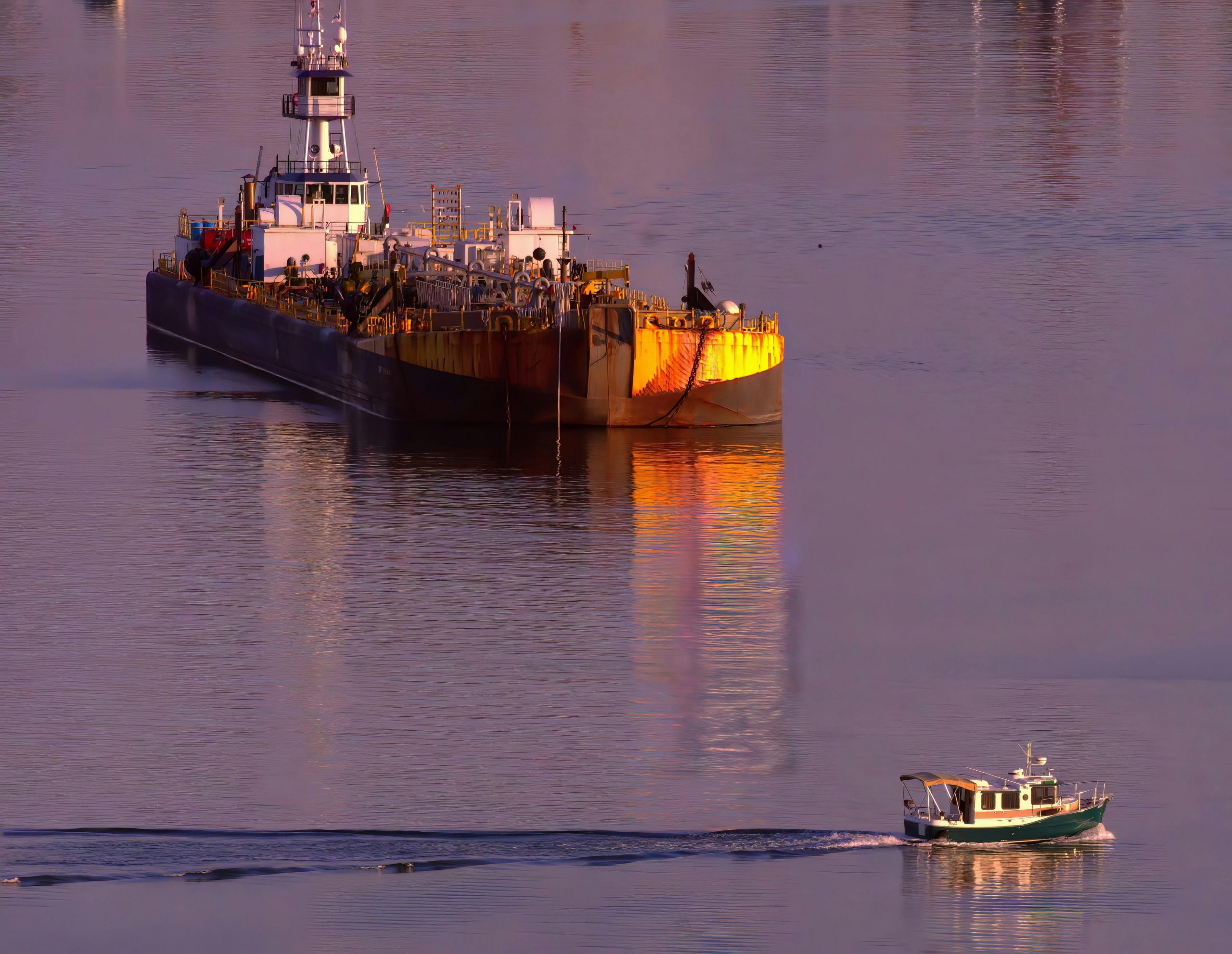A DSC (Digital Selective Calling) marine VHF Radio, is an updated version of the old VHF Radio.
So… What’s new?
Think, ‘mobile phone’. Your DSC/VHF has a telephone number, memory, a ring tone when called and even has a GPS position. In its memory, it can store a directory of all your contact’s DSC numbers (known as MMSI, marine mobile service identity) and a selection of pre-programmed text messages.
Using the administration channel 70 the DSC is in constant communication with all the other DSC radios within range. You can ‘call’ another DSC by either dialling it’s MMSI or using your directory (sounding its ringtone).
Improved safety
By lifting the red flap and pressing the ‘Red Button’ (usually TWICE) your DSC instantly activates every other DSC within range, sounding their two-tone alarms and changing their receiving channel to Ch 16, ready for any Mayday by voice. The coastguard will also be alerted and receive your Identity and Position. Another important consideration is time and battery power, a voice Mayday takes lots of both time and high power. A DSC distress alert takes a fraction of a second and keeps repeating until acknowledged.

What about licencing?
The law requires that all vessels having a marine VHF radio, require TWO Licences.
Firstly, a ‘Ship Radio Licence’ or ‘Portable Radio Licence’ which you get, online from OFCOM. It's Free and lasts for ten years, so there are very few excuses for not having one. You get an MMSI number and Call Sign whilst applying for the Ship Radio Licence.
The main issue with the Ofcom licence application is that the form is very comprehensive (it covers all types of vessels from supertankers to kayaks). If you don’t complete ALL the fields your application will be rejected and if you have poor broadband, it might time out.
Secondly, someone onboard requires an ‘Operators Licence’. The Royal Yachting Association is responsible for the training and issuing of UK DSC operator’s licences.
“How do I get one?” I hear you ask...
There are a couple of ways to train.
⦁ Online. The RYA has an excellent interactive programme which allows you to study the course in your own time. The course takes around 10 hours and is complemented with either a Handbook or e-book.
Take a look www.rya.org.uk/go/src-taster
To enrol on an interactive course, you need to book via an RYA Recognised Teaching Establishment. There are two short tests. An online ‘Knowledge test’ at the end of the interactive course and then a face to face written and practical session with an assessor (a positive and painless 30 minutes).
⦁ Three-part Classroom Course (at an RYA Recognised Teaching Establishment).
Firstly, you do three hours pre-course study from either the Handbook or e-book.
Secondly, you attend a seven-hour course covering:
- How the radio works
- Rules and Regulations
- Operating a Marine VHF Radio
- VHF channels
- Voice procedure
- Routine Calls
- Distress Calls
- Urgency Calls
- GMDSS (Global Maritime Distress and Safety)
- Digital Selective Calling
- Practice Scenarios on a training radio
Finally, the Asessment - A short session with an independent assessor with a written test paper and a practical scenario on a training radio.
#1 FAQ: “What happens if I press the Red Button by mistake?”
If you need to cancel a Distress Alert:
-
Switch to Channel 16
-
“All Stations All Stations All Stations”
-
This is (Your vessel’s Name x3) MMSI number and Call Sign
-
“DSC ALERT ISSUED IN ERROR”
-
“OUT”
A friendly Coastguard voice should acknowledge.
Dave Comer is a maritime professional specialising in tutoring seafarers for MCA and RYA qualifications at the International Yachtmaster Academy.




